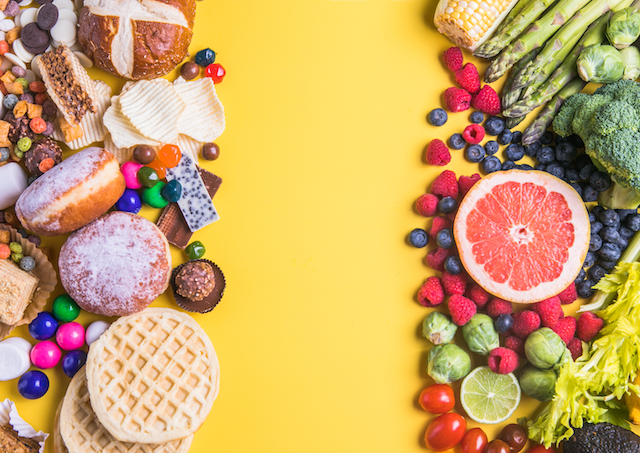Your Mood on Processed Food
One of the most overlooked culprits sabotaging mental health is a diet high in processed foods. These easy to find, packaged items may save time, but they come at a significant cost to your physical and mental well-being. Let’s explore how processed foods can impact the gut-brain connection and uncover simple, nourishing swaps to help uplift your mood.
What Are Processed Foods?
Processed foods are items that have been altered from their natural state for safety, convenience, or extended shelf life. Think frozen meals, fast food, candies, chips, store-bought baked goods, sodas, and even some granola bars. They’re typically loaded with:
Added sugars
Unhealthy fats
Chemical additives
Excess sodium
While these ingredients make processed foods highly palatable and addictive, they strip away vital nutrients like fiber, vitamins, and minerals—the very elements our bodies and minds need to thrive.
The Science Behind Food Addiction
Did you know that there are jobs specifically designed to make processed foods as addictive as possible? Food companies employ scientists to develop “bliss points”—the perfect combination of sugar, fat, and salt—to trigger your brain's reward system. This engineering creates a cycle of craving and overconsumption that leaves you reaching for more.
In fact, studies show that highly processed foods activate the same areas of the brain as addictive drugs, which may explain why it can feel so hard to say no to that bag of chips or candy bar.
Processed Foods and the Gut-Brain Axis
Your gut and brain are in constant communication via the gut-brain axis, a network of nerves, hormones, and immune signals. A diet in processed foods can wreak havoc on this delicate connection by disrupting your gut microbiome—the collection of trillions of bacteria living in your digestive system.
Here’s how processed foods harm the gut:
Feed harmful bacteria: Ingredients like refined sugar and artificial additives nourish harmful bacteria like Clostridioides difficile (C. difficile).
Cause leaky gut: These bacteria release toxins that damage your intestinal lining, allowing undigested food particles and bacteria to enter the bloodstream and trigger inflammation.
Starve beneficial bacteria: Processed foods lack the fiber and antioxidants that good bacteria like Lactobacillus and Bifidobacterium need to thrive.
This imbalance in your gut microbiome leads to widespread inflammation, which can impair mood, cognition, and even sleep. Over time, it sets the stage for mental health challenges like anxiety, depression, and brain fog.
Simple Swaps
The good news? Your gut microbiome responds quickly to dietary changes, and even small shifts can lead to noticeable improvements in your mood and mental clarity. Here are some easy swaps to get started:
Instead of chips: try snacking on nutrient-dense options like nuts, seeds, or cut veggies paired with hummus or guacamole. You could try high-quality beef jerky for a protein boost. If you're craving chips, that's okay too! Just aim for a moderate portion and choose brands with clean, simple ingredients—look for ones made with just potatoes, salt, and oil. Balance and mindfulness are key!
Instead of sugary snacks: Opt for dark chocolate (at least 70% cocoa) or fresh fruits. Make desserts at home using ingredients that are whole and nutrient dense.
Instead of flavored yogurts: Choose plain Greek yogurt topped with fresh berries and a drizzle of honey. Bonus, add in a scoop of protein powder.
Instead of white bread and pasta: Choose whole grains like quinoa, farro, or rice.
Instead of soda: Hydrate with sparkling water infused with fresh fruit or herbal teas.
How I Can Support Your Journey
As a health coach, I specialize in helping clients transition to a nutrient-dense, mood-supporting diet tailored to their unique needs. Whether you’re struggling with sugar cravings, low energy, or mood swings, I’m here to guide you with practical tools, personalized meal plans, and emotional support.
Schedule a free discovery call today to explore how we can work together to create sustainable, positive changes.




